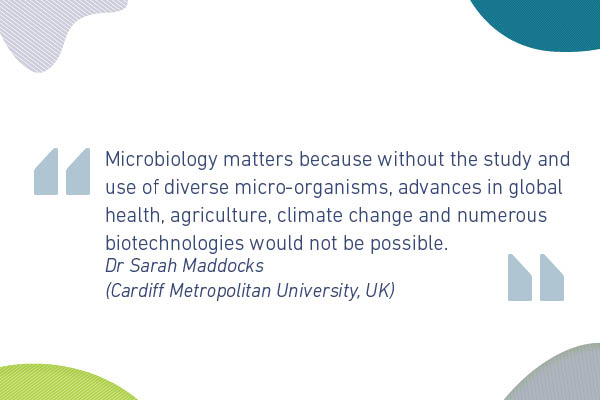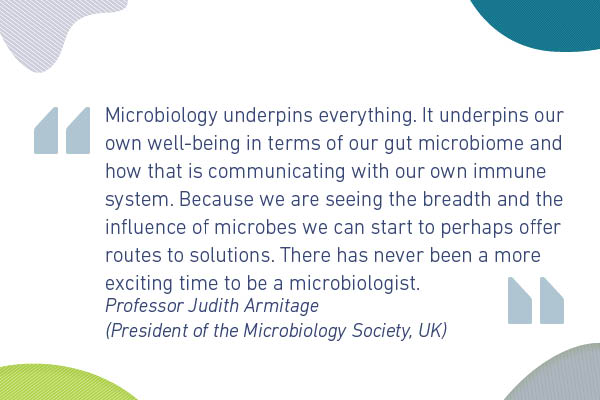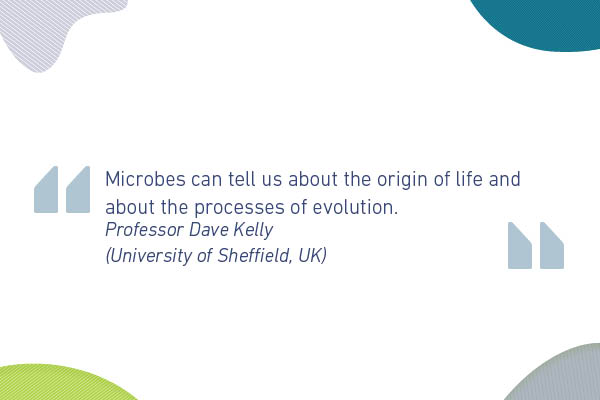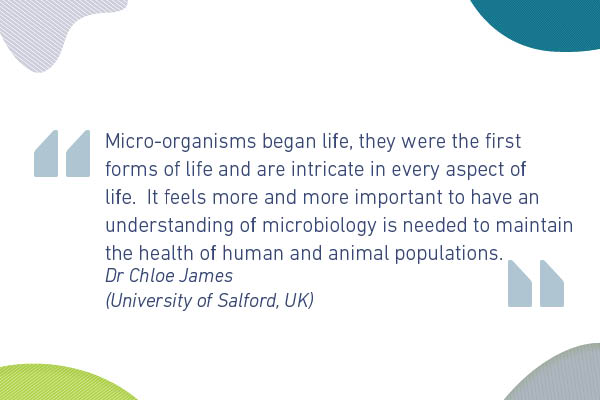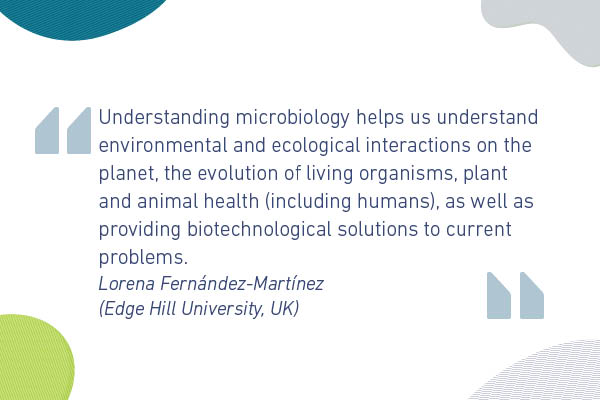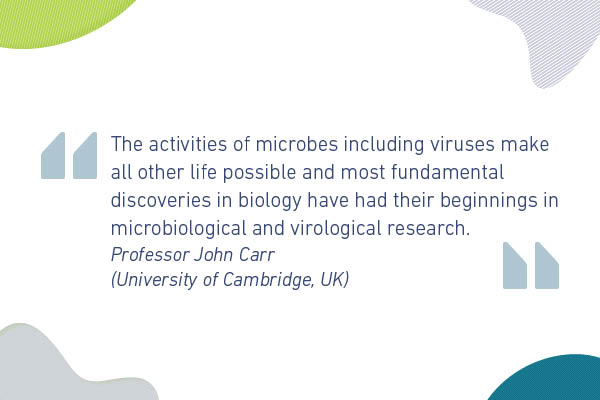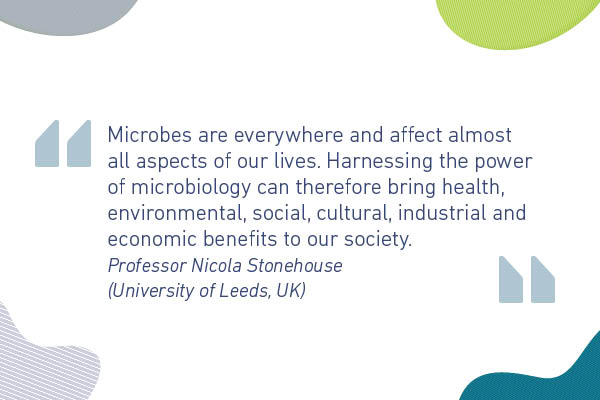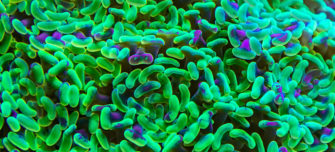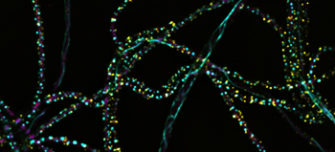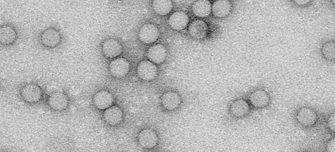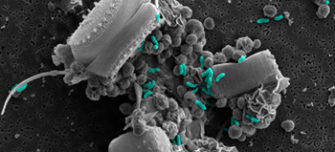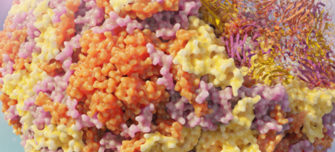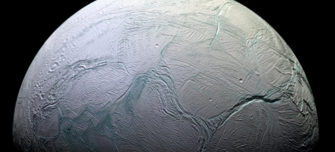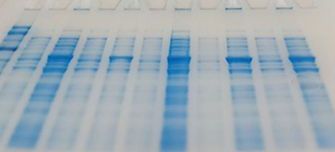Showcasing Why Microbiology Matters
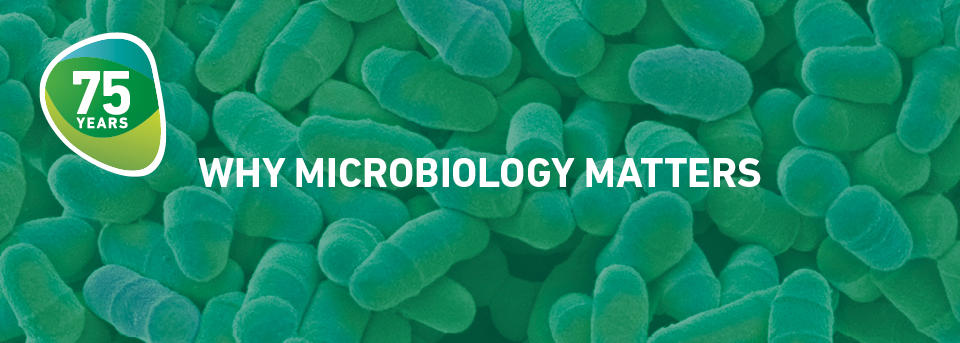
Why microbiology matters
Microbes are everywhere and affect almost all aspects of our lives. We cannot see them, but our world would not function without them. Bacteria, viruses, fungi, protists, archaea, algae and other microscopic life forms are on us and in us, in the air, soil and water, and in our food. They are in and on the surfaces of everything in our homes, workplaces and other environments. Most do not harm us and many are essential for the good health of humans, animals and the planet.
Microbes help keep the planet healthy by recycling waste and supplying nutrients. Agricultural systems would not function without some while others are harmful pests. Industry uses microbial processes to produce foodstuffs and drugs, benefiting society and creating wealth.
Why our community thinks microbiology matters
To celebrate our 75th anniversary we invited microbiologists to nominate the discovery or event that best showcases why microbiology matters and helps us demonstrate the impact of microbiologists past, present and future. We received strong submissions that led us to finalising key topic themes which we will be showcasing throughout the anniversary year. Find out more about why microbiology matters below.
We are launching new collections of digital content for our anniversary, under the heading Why Microbiology Matters. The first of these digital content hubs is dedicated to Unlocking the world of microbiomes.
-
Unlocking the world of microbiomes: exploring microbial communities
Research into the microbiome has evolved over time allowing us to study microbial communities, genes and proteins in more depth. We will explore three key areas of microbiome research: the microbiome and human health, agricultural and food microbiomes and environmental and industrial microbiomes.
-
Understanding bacteria and the challenges in microbiology
There are approximately 10 times as many bacterial cells as human cells in the human body. They are found in every habitat on Earth, therefore in an era where antimicrobial resistance has become a global issue, developing novel antimicrobial strategies, discovering the world of biofilms and understanding bacteria in industry is important to the world of microbiology.
-
Vaccines: the global challenge for microbiology
Vaccines are made from microbes that are dead or inactive so that they are unable to cause disease. Not only do vaccines protect individuals, they can also provide herd immunity. We will explore four key areas of vaccination, including how vaccines work, are produced, more about herd immunity and eradicating disease.
-
Microbes and where to find them
Microbes can be found in a range of diverse environments and contribute to many vital environmental processes. We will explore three key areas where microbes can be found and how we can use them to our advantage: microbes at the extremes, the role of microbes in climate change and recycling and creating novel products from microbes.
-
Understanding viruses and challenges in microbiology
Viruses are the smallest of all the microbes, and they are unique because they are only alive and able to multiply inside the cells of other living things. We will explore three key areas: the life cycle of pathogens and how they spread, emerging viruses and how viruses are treated.
-
New frontiers in microbiology
Microbiology research has been, and continues to be, central to meeting many of the current global aspirations and challenges, such as maintaining food, water and energy security for a healthy population on a habitable earth. Through research, microbiology helps answer big questions such as 'how diverse is life on Earth?', and 'does life exist elsewhere in the Universe'? We will explore three key areas: the ever-growing tree of life, synthetic biology and life on other planets.
-
Exploring microbiology and genetics
Microbiology is a pioneering discipline. Many of the fundamental processes of biology were first elucidated in microbial systems – deciphering the genetic code. We will explore the impact of CRISPR-Cas, the world of phage, and restriction enzymes and the process of genetic modification.
Image credits:
Martina Birnbaum/iStock
Steve Gschmeissner/Science Photo Library
Judith Armitage
Nicola Stonehouse and Oluwapelumi Adeyemi
Cameron Hubert
Cameron Baines
UN.org/sustainabledevelopment
Danny Ward

